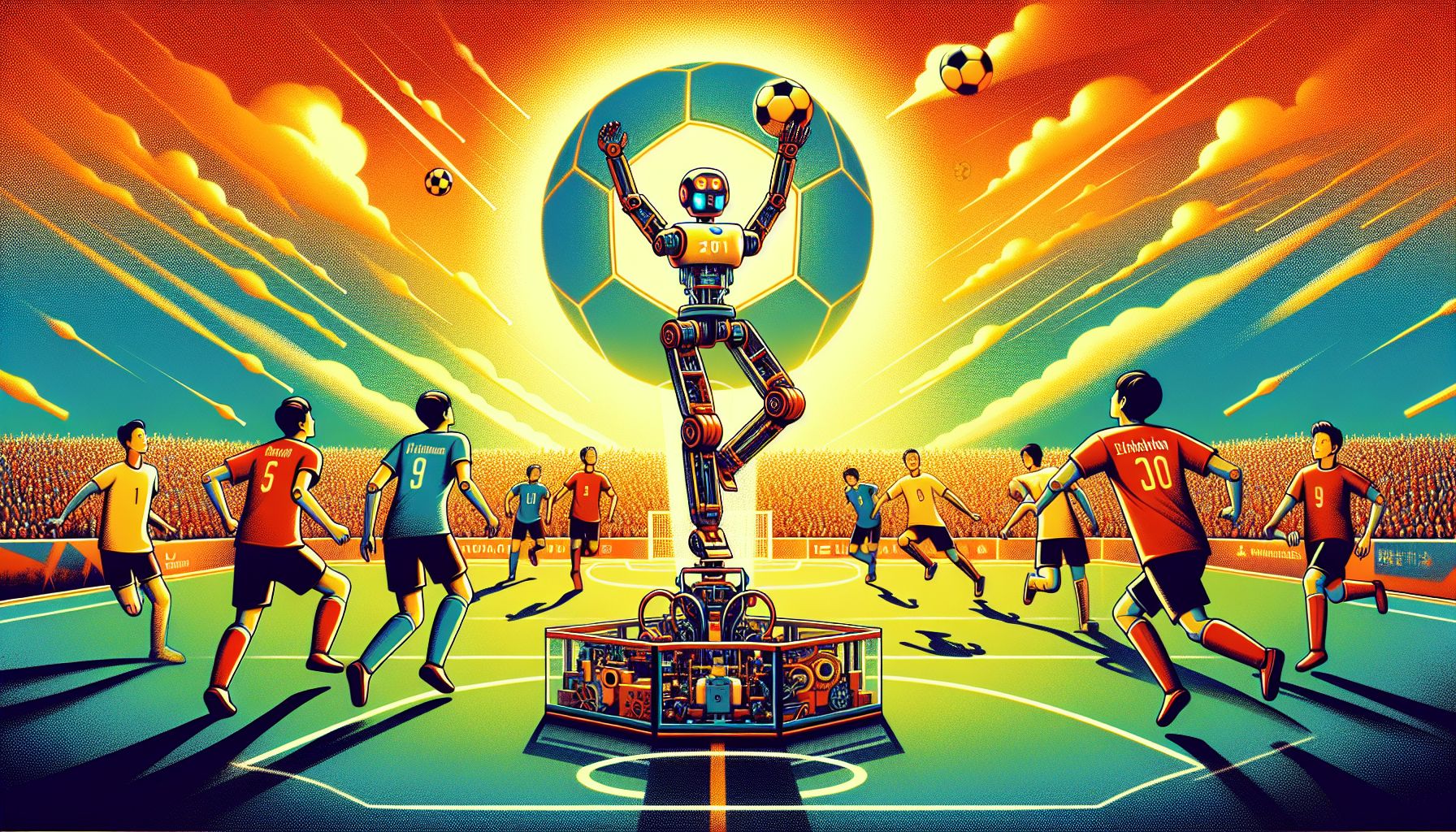TU Eindhoven Triumphs in Robot Soccer World Championship

Eindhoven, Monday, 22 July 2024.
The robotics team from TU Eindhoven clinched the world title in robot soccer, defeating China’s Hunan University 6-1. This victory showcases cutting-edge developments in robotics and AI, with implications far beyond the soccer field.
A Victory for Technology and Innovation
The triumph of TU Eindhoven’s robotics team at the RoboCup 2024 held in Eindhoven marks a significant milestone in the field of robotics and artificial intelligence. The team, known as Tech United, demonstrated superior maneuverability and coordination, which played a pivotal role in their decisive 6-1 victory over Hunan University from China. The event, hosted at the Genneper Parken, attracted teams from 45 countries, emphasizing the global interest and investment in robotic innovations.
How the Robots Work
The robots used in RoboCup operate autonomously, executing strategies and movements programmed by their developers. These sophisticated machines are equipped with advanced sensors and algorithms that allow them to navigate the field, pass the ball, and score goals. The robots’ ability to perform complex tasks is a result of continuous improvements in their maneuverability and detection systems, making them not only effective on the soccer field but also potentially useful in various industrial applications.
Innovations Driving Success
Tech United’s success can be attributed to several key innovations. This year, the team introduced players with three steerable wheels, enhancing their acceleration and braking capabilities. Additionally, improved software has optimized the robots’ movements and soccer actions, ensuring more precise and effective gameplay. These advancements are part of the broader goals of RoboCup, which aims to push the boundaries of technology in mechatronics, computer science, electronics, and AI.
Broader Implications and Applications
The innovations seen in RoboCup have significant implications beyond the competition. For instance, the maneuverability and coordination of these robots can be applied in warehouse automation, healthcare, and disaster response. Autonomous robots capable of efficiently navigating and performing tasks can revolutionize these industries by increasing efficiency and reducing human labor. The concept of ‘lazy robots,’ as introduced by Professor René van de Molengraft, focuses on improving computing power and energy efficiency by intelligently ignoring unnecessary information, thus enhancing overall performance.
Future Prospects
Looking ahead, the goal of RoboCup is to develop robots that can compete with and ultimately defeat professional human soccer players by 2050. This ambitious target requires ongoing advancements in robotics, including a potential shift from wheeled to legged robots for more versatile movements. The continuous exchange of knowledge and progress among participating teams ensures that each year brings new breakthroughs, driving the entire field of robotics forward.

